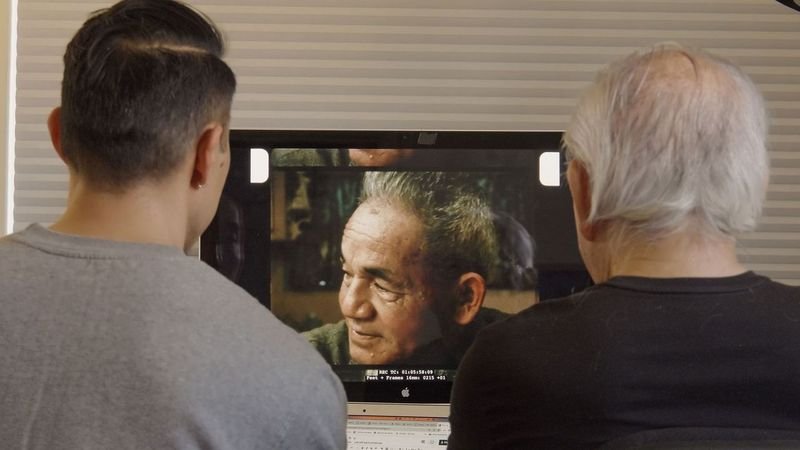
ABOUT
Director’s Statement
My father is called the “godfather of Asian American media” for his pioneering work in the field, but it took me years to see him as such, because to me he was just Dad. At first, I thought people called him that because he was old. He was 44 years old when I was born, twice the age of most of my friends’ fathers.
When I finally grasped how much he has done, I was more intimidated than proud. Perhaps if I hadn’t followed in his footsteps – the fledgling filmmaking son of a bona fide filmmaking legend – I wouldn’t have been so petrified. I remember after making my first film, my mother – who has written and produced many of my father’s films – introduced me as “the new and improved Robert Nakamura.” She meant that as a compliment but I was mortified. How could I ever live up to what he has done?
It has taken me awhile – over the course of making four films of my own – to realize that I don’t have to be him. He taught me better than that. Like the others he mentored over thirty years of teaching, he helped me develop my own voice, my own vision. He has passed on two things: the privilege, as well as the responsibility to tell our own stories – he, his generation’s, and me, I realize, my own.
In many ways, his story is my story. When I was just three weeks old, I made my film debut as a crying baby boarding a bus bound for a WWII concentration camp in his feature film, "Hito Hata: Raise the Banner". As an undergraduate, I learned to make my own films in his film class, and later served as his teaching assistant
As a documentary filmmaker, I credit him as my most trusted guide. Synchronistically, my father made a film about his father when he was the same age I am now – almost 50 years ago. In an Asian American culture that eschews outward gushes of affection as obsequious, he said maybe that was how he hugged his father. And, with THIRD ACT, I am hugging mine.
As I come to realize how his life and career have been shaped by coming to grips with the mass incarceration of WWII, I realize that I have inherited the legacy of that governmental betrayal, the historical trauma, which is intergenerational. Our shared stories. And yet, as we both encounter the anxieties of old age and illness, and the role-reversal between father and son, embedded within or just outside of every personal frame, the story is universal: how do a father and son let go of each other? THIRD ACT is the culmination of our relationship. I have made every one of my own films with my father – the “godfather” - at my side. THIRD ACT is most likely the last.
-TADASHI NAKAMURA
DIRECTOR, THIRD ACT



